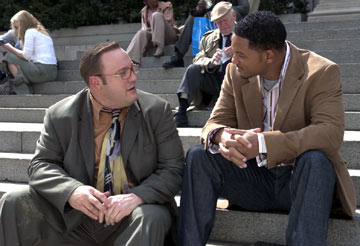What Taxes Teach
 |
| (in that terrible movie Hitch, Kevin James plays an accountant, and when I saw his AICPA mug on his desk I exploded in joy at the movie theater. That was the only good part of the movie. |
Thanks to the good people at TurboTax, I have once again complied with federal and state law that I pay my taxes. And, to be honest, I’ve always loved tax season. My father worked for the AICPA (American Institute of Certified Public Accountants) and it meant that we always had funky-colored calculators around the house (extras from the previous year of exams), mugs and shirts that said loudly AICPA, and phrases like “Schedule C” were commonplace.
I’m also thinking of taxes in the classroom. First, when it comes to the “destruction” of the Federalist Party. When John Adams left the White House in 1801, it would be 24 years before another Adams ruled it; but the second Adams was not a “Federalist.” He followed in the line of Jeffersonians (where being Secretary of State stood as an audition for the presidency). John Quincy Adams signaled just how far and wide the destruction of the Federalists had gone. But it also showed how much the Jeffersonian Republicans had transformed. Jefferson’s agrarian, yeoman republic was great in theory (especially great for independent white men), but the realities of nineteenth-century nation building and protection made even Jefferson sound like a Hamiltonian. “Experience has taught me that manufactures are now as necessary to our independence as to our comfort,” TJ penned a year after the War of 1812 concluded (and 10 months after Andrew Jackson concluded his protection of New Orleans). The Jeffersonian Republicans were mutating into pro-manufacturing, and … even pro-tariff positions. It seems that most folks hate taxes until they advance their position.
I’ve also decided that there may be lessons from our tax codes that are useful in the classroom. Before you get concerned, I’m not thinking of taxing the students or giving them benefits for being married or having dependents (who would want that kind of paperwork to deal with!). But I am putting in place a progressive improvement assessment … meaning that students who improve in their grades on papers 2 and 3 will receive progressive incentives. Each paper is worth 50 points, and thus if a student received 30/50 on her first, she has a 60%. As my current grading system goes, even if that student receives 48/50 on both of the next papers, her grade will still be 75% or a C. On one hand, that’s fair. A student who receives 60% on a paper perhaps should get a poor grade. But on another hand, that kind of stinks.
But what about the start-up costs for a new class? What about being new to a university or to a particular brand of teaching style or grading style? What if there was an incentive to improve that was now put in place?
So here’s the progressive improvement assessment. Students will receive points added to their final grade based on how much they improve upon the first essay in their second and third essays.
Improvement (average of essays 2 and 3 minus essay 1 score)
|
0-5 points
|
10% x points added to final score
|
|
6-10 points
|
20% x points added to final score
|
|
11-15 points
|
30% x points added to final score
|
|
16-50 points
|
40% x points added to final score
|
This means the student who received 30/50 on her first essay and then averaged 48/50 on her next two essays scored 18 points higher. 40% x 18 = 7.2. I’ll add the 7.2 points to the overall score. So this student would now have an 82.2 or a B-. Much better, I think, and more fair.
So hip-hip-hooray for the ideals of progressive taxation. It can even benefit my students and encourage them to work harder on their next assignment.
Has anybody else tried a system that accounts for improvement??? Anything work?
And maybe my students will be so inspired by Jefferson’s willingness to change that those who have stopped reading Hist and Major Problems will crack the books open. They may find some important points about the Supreme Court’s developments after Jefferson’s election, the Lewis and Clark team leading the Corps of Discovery into the far west, the reasons why there was a misnamed War of 1812, and some points about TJ’s foreign policy.



I love this!! Hope to use it someday. I also love the history of taxes, but my dad is also an accountant. Are there book length monographs on the popular history of taxes out there?
speaking of taxes … congratulations Janine on your new little write-off 🙂
Hitch was actually quite awesome…